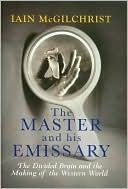More on this book
Community
Kindle Notes & Highlights
Read between
October 2, 2017 - June 30, 2021
The philosopher Gabriel Marcel speaks of the difficulty in maintaining one’s integrity as a unique, individual subject, in a world where a combination of the hubris of science and the drive of technology blots out the awe-inspiring business of conscious human existence, what he refers to as ‘the mystery of being’, and replaces it with a set of technical problems for which they purport to have solutions.
The concept of the individual depends on uniqueness; but according to the left hemisphere’s take on reality, individuals are simply interchangeable (‘equal’) parts of a mechanistic system, a system it needs to control in the interests of efficiency. Thus it would be expected that the state would not only take greater power directly, but play down individual responsibility, and the sense of individual responsibility would accordingly decline.
The left hemisphere misunderstands the nature of such relationships, as it misunderstands altruism as a version of self-interest, and sees them as a threat to its power.
As a culture, we would come to discard tacit forms of knowing altogether. There would be a remarkable difficulty in understanding non-explicit meaning, and a downgrading of non-verbal, non-explicit communication. Concomitant with this would be a rise in explicitness, backed up by ever increasing legislation, de Tocqueville’s ‘network of small complicated rules’. As it became less possible to rely on a shared and intuitive moral sense, or implicit contracts between individuals, such rules would become ever more burdensome. There would be a loss of tolerance for, and appreciation of the value
...more


